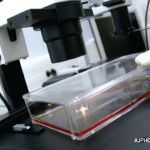Many of the medications used in rheumatology can potentially be toxic to the renal system and gastrointestinal tract unless proper measures are taken to help prevent stress on these systems. Encouraging patients to hydrate as much as possible during the hours between their fasts is essential to help curb some of the adverse effects that may occur due to medication use.
Additionally, adjusting the dose of medications to fall before sunrise or after sunset and taking the medication after or with food may reduce effects on the gastrointestinal tract.
It is commonly believed that receiving vaccinations (subcutaneous) is permitted during the fast given that the majority of vaccines are not oral.12
Clinicians
Clinicians and individuals on the healthcare team may also be Muslim and are likely to be fasting during this month as well. The fast should not affect their ability to take care of patients, and most healthcare individuals’ understanding of physiology allows them to recognize the limits to patient care if there is any hesitancy.
Fasting should not affect the ability of a Muslim healthcare team member to help care for the patient and should not affect their decision-making capacity. However, some clinicians and healthcare professionals may adjust their schedule to optimize the timing of work during Ramadan to allow for prayer and contemplation. Some individuals may choose to start work earlier (such as when making hospital rounds), and others may choose to limit the total number of patients seen in their clinic during the day by working through the lunch hour and ending clinic earlier than their usual time if their schedule and work setting allow.
In Sum
Ramadan is not only a month of fasting, prayer, introspection and worship. It is also a month of self-improvement and purification. The end of Ramadan marks a religious holiday, Eid ul-Fitr, Arabic for “festival of breaking fast.” It is celebrated over three days at the end of Ramadan with prayer, feasts, parades, gifts and charitable giving.13
The majority of Muslims will participate in Ramadan in some capacity, including fasting. Healthcare delivery can continue to be effective during Ramadan even if slight modifications need to be made to medication regimens and schedules.
To optimize care and promote the safety and trust of our patients, we must demonstrate cultural competence and knowledge about the basics of Ramadan. We must aim to familiarize ourselves with fasting, treatments and procedures that invalidate a fast and the effects fasting may have on medication use and disease state.

